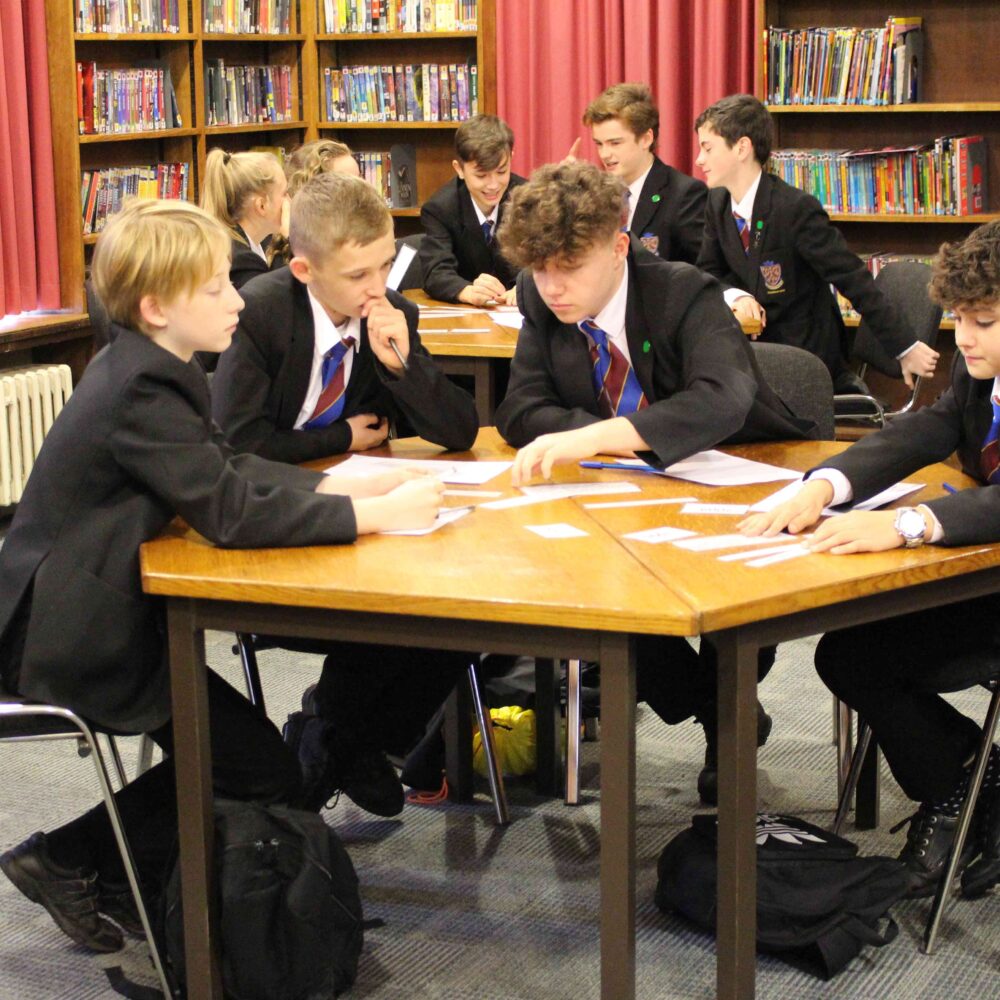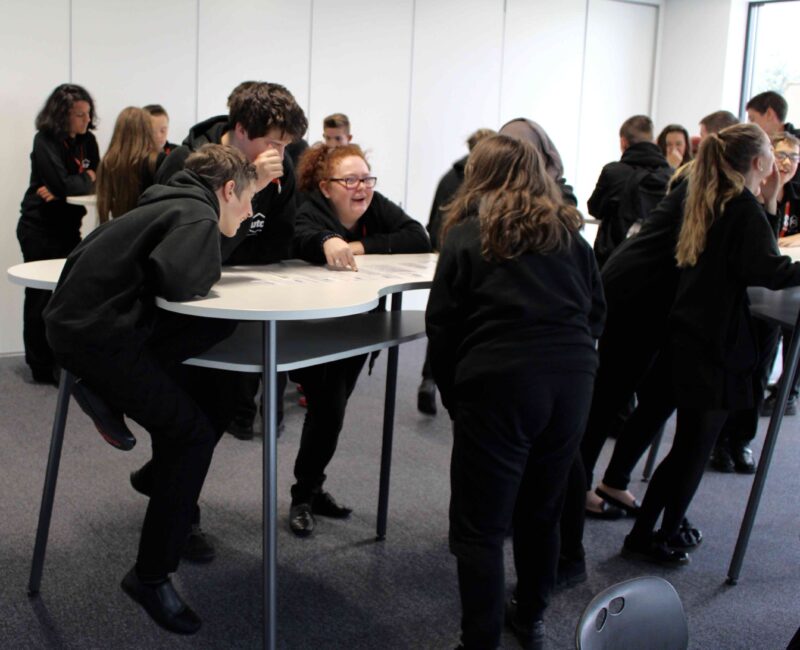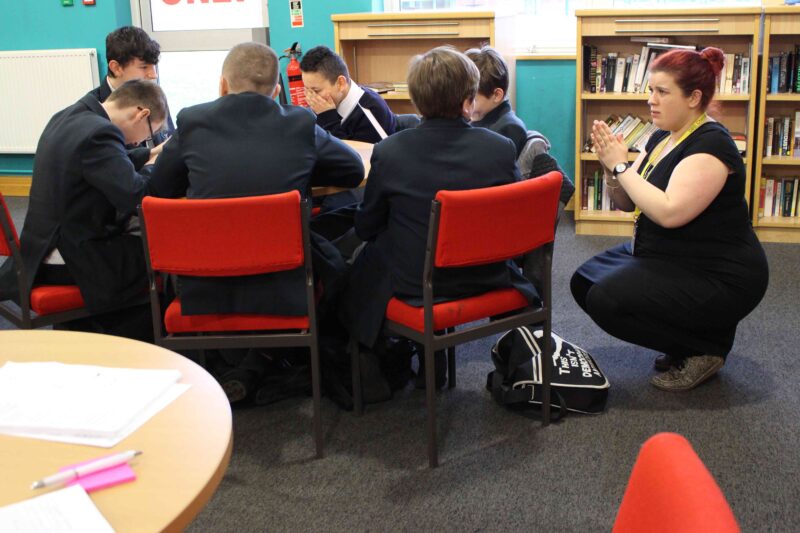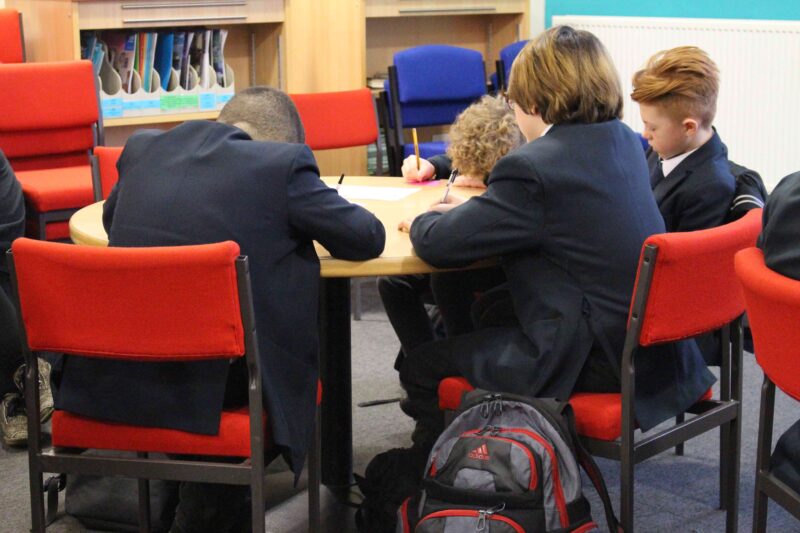



This Hate Crime Awareness Week within LGBTQ+ History Month has felt pretty significant. This year it has been 30 years since anti LGBTQ+ clause Section 28* was introduced by Thatcher and 100 years since the first set of women received the vote. There’s been a lot to look back on but also plenty recently in the news too. We spent Hate Crime Awareness Week in schools and prisons discussing equality and LGBTQ+ History.
Every year 8 group (age 12-13) we worked with highlighted inequality happening, with examples of Trump’s policies, the Harvey Weinstein case, racism, islamophobia, sexism and modern slavery. The celebration of the 100 year anniversary featured in each too although few of them knew that the #vote100 was actually not for all women, the fight definitely wasn’t over, it took working class women and women between 21-30 another ten years to receive the vote on 2nd July 1928. In the workshops this often led to discussions about class (which is interestingly not part of the Equality Act 2010), and in one school in Wythenshawe a discussion about prisoners and the discrimination they face upon release. Little did I know when speaking to those 12 year olds that just a few weeks later I would be having the same conversation with prisoners.
As part of the workshop we focus on the progress of the LGBTQ+ community. The school groups were shocked that the law change for same-sex marriage came in so recently, although some were still shocked that it is legal. With both young people and prisoners the conversation regularly focused on those in same-sex relationships being able to adopt, and that they thought it was ‘wrong’, whilst often citing religious text or the survival of the human race to explain their stance. It was great to have so many participants open to discussion and debate, ask difficult questions of each other and challenge each other to be more open and to engage empathy with other communities. We do these workshops regularly, and although it feels acceptance of same-sex relationships and marriage are rising, when it comes to same-sex couples or LGBTQ+ individuals being parents, there is still a lot of work to do.
With both the schools and the prison I asked “what do you think comes first, the law, or societies views?”. Interestingly young people, on the whole, voted that society influences law changes through protest because the politicians ‘work for us’. However, on the whole, the adult prisoners believed the Government made laws and that our beliefs had to fall in line.
In both types of workshops the phrase ‘times are changing’ was used, and I agree they are. In terms of LGBTQ+ equality it feels like there is more acceptance than ever before. However, hate crime is still a huge issue for our community – there are still people who plan to harm or kill us for being ourselves like this 20 year old who was sentenced last month who planned to kill those attending a Pride in Cumbria: “There’s a pride night. I’m going to walk in with a machete and slaughter every single one of them”**. There is still so much still to be done.


This group of workshops with young people was the first time we have ever discussed prisoners. They articulated that for those who have been involved in criminal activity and sent to prison have some of their equality (status, rights, opportunities) temporarily removed, but on release, they have ‘paid’ for their crime and their right to equality should be returned to them. Yet they seemingly don’t because they struggle to get work, housing and build new friendships and relationships. The expectation of prisoners is always that they cannot be trusted and will re-offend, but are we creating that cycle for them by our preconceptions?
A few weeks later I was invited to run the same workshop with prisoners – it was my first time in a prison. With the discussion with Year 8 pupils still ringing in my ears we began a conversation about preconceptions; one prisoner said to me ‘I bet you judged us before coming in here. I bet you thought we were scumbags, murderers and psychos’. I had been there 20 minutes. I asked them, ‘assuming that I did think that, do you think in 20 minutes of meeting you all, you’ve changed my opinion?’. They said they thought, and hoped they had. I asked if they thought it was important if I told others who might have that negative preconception that it was unfounded. They agreed it was and it was important for people to understand them.
I asked the prisoners ‘What can we all do to make society more equal for everyone?’. We talked about the importance of being a visible advocate for a community you are not part of. We discussed white privilege, male privilege, middle-upper class privilege, and heterosexual privilege. Over our time together we discussed how important it is to use any privilege we have to support others, but also to encourage those who aren’t part of communities we are part of, to be open about advocating for them. And just as they wrote pledges to support the LGBTQ+ community, I wrote a pledge to challenge preconceptions of prisoners.
I asked the Year 8 school pupils the same question ‘What can we all do to make society more equal for everyone?’ – “Be bold. And brave”. And he was right, we need to, because even at times when significant progress has been made, like the women’s vote, those progressions don’t always include everyone. Equality has to be intersectional and inclusive of everyone, not just the pocket you are part of, or have close connections with, but everyone. Sometimes that means learning about identities, beliefs or cultures that you don’t know or understand, but knowledge is power, and equality means lifting people up with equity who don’t have the privileges that you do.
The only way we are all truly free and equal is even we are all free from prejudice, discrimination and hate. As Audre Lorde said “I am not free while any woman is unfree, even when her shackles are very different from my own”.
#westandtogether
With thanks to Manchester City Council and Salford CVS for their funding and support with our equalities work in schools


References
* Margaret Thatcher’s clause stating local authorities “shall not intentionally promote homosexuality or publish material with the intention of promoting homosexuality” or “promote the teaching in any maintained school of the acceptability of homosexuality as a pretended family relationship” introduced in 1988 and repealed in 2003: https://www.legislation.gov.uk/ukpga/1988/9/section/28/enacted
More images from the Section 28 protests here: https://www.flickr.com/photos/manchesterarchiveplus/sets/72157629105785037/